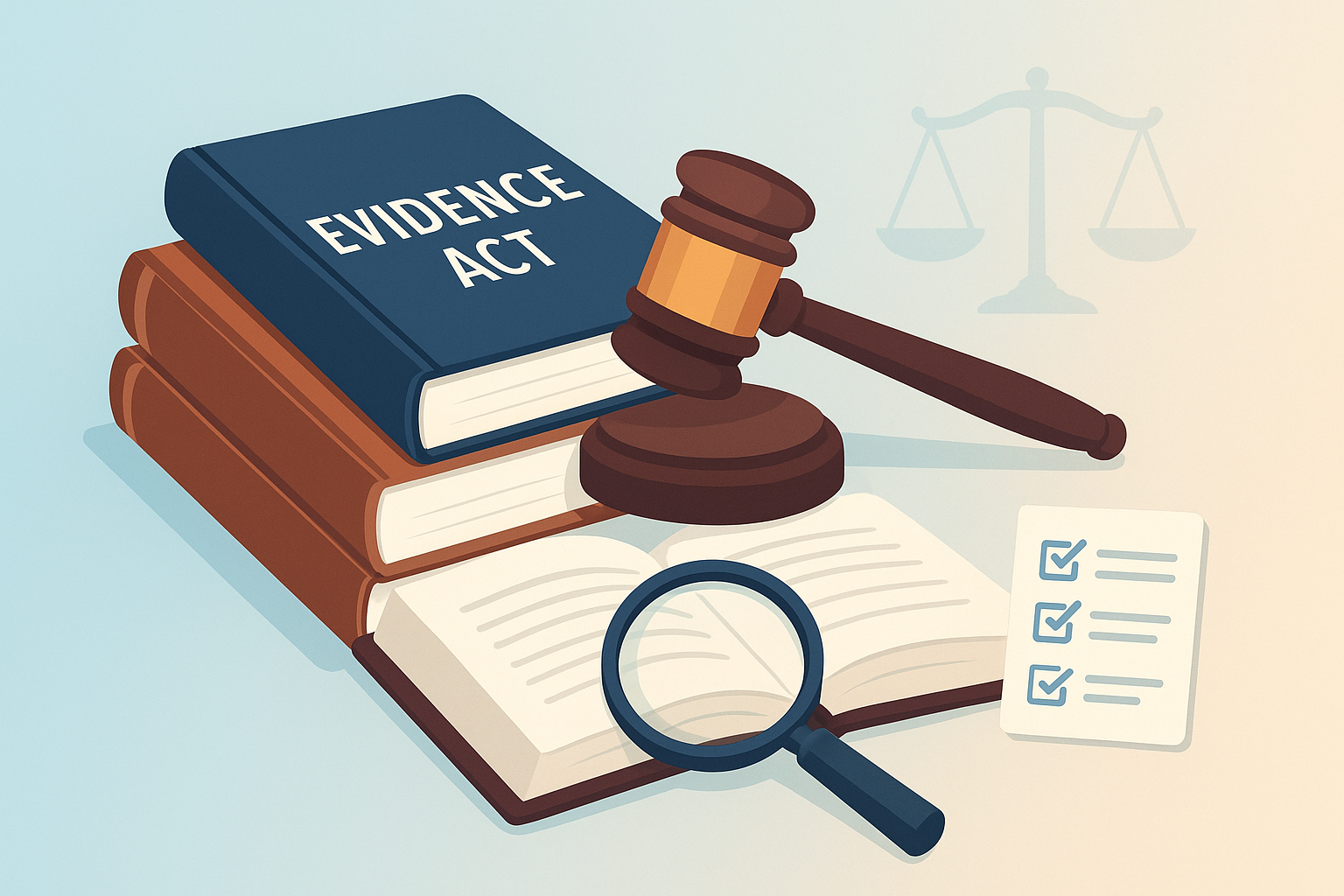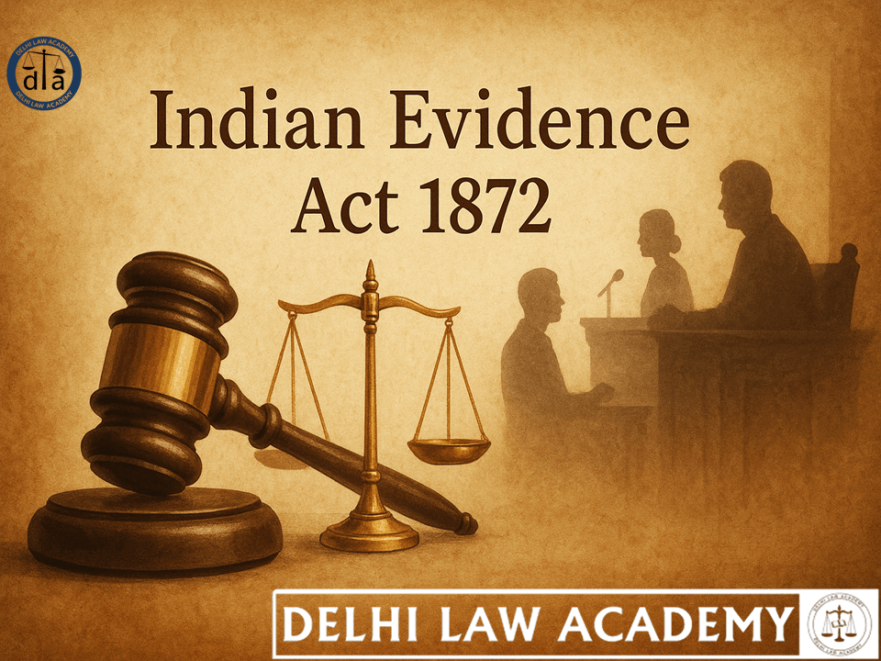
📜 A short Note on confessions supported by landmark Supreme Court judgments
📚 The Indian Evidence Act 1872: Section 24 CONFESSIONS
Definition of Admission Section 17
- An admission is a statement
- oral or documentary or contained in electronic form
- which suggests any inference as to any fact in issue or relevant fact
Relevancy of Admissions Section 21
- Admissions are relevant and may be proved
- as against the person who makes them
- but they cannot be proved
- by the person who makes them
Q :
- What is the impact of an admission?
Ans: Supreme Court in Bishwanath Prasad v. Dwarka Prasad:
- An admission by a party is substantive evidence if it fulfils the requirements of Section 21 of the Evidence Act
- Admissions are usually telling against the maker unless reasonably explained.
CONFESSIONS
Q: What is a confession?
- ‘Confession’ has not been defined in the Evidence Act or in any other enactment.
- Definition given by Lord Atkin [Judicial Committee] in Pakala Narayanaswami v. King-Emperor in 1939
What constitutes a confession..
Ans:
- “A confession must either admit in terms the offence, or at any rate substantially all the facts which constitute the offence.
What does not constitute a confession..
- An admission of even a gravely incriminating fact is not of itself a confession, e.g. an admission that the accused is the owner of and was in recent possession of the knife or revolver which caused a death with no explanation of any other man’s possession is of itself not a confession.
Example of a confession:
- A is accused of causing grievous hurt to B. A makes a statement: I struck B with a knife and hurt him.
- This statement amounts to an admission by A of an offence. This statement amounts to a confession if A does not add words to this statement to bring his case within any recognised exception.
- If he does so, it remains an admission; it does not become a confession.
- A makes another statement: I struck B with a knife and hurt him but I acted in self-defence. In this case, it remains an admission; it does not become a confession.
Another definition of confession: CBI v. V.C. Shukla [1998 SC]
- Only voluntary and direct acknowledgement of guilt is a confession.
What does not constitute a confession..
- A statement which contains an exculpatory assertion of some fact, which if true, would negative the offence alleged cannot amount to a confession. [Authority: Supreme Court in Veera Ibrahim v. State of Maharashtra [1976]
- Confession is a species of admission.
- The law relating to confessions is to be found generally in Sections 24 to 30 of the Evidence Act.
- A confession is evidence against the maker of it, unless its admissibility is excluded by some provision of law.
Certain confessions are not relevant:
- Confessions caused by certain types of inducements, threats or promises [Sec 24]
- Confessions made to a police officer [sec 25]
- Confessions made while in custody of police [sec 26]
- However, Section 27 provides an exception to the prohibition contained in the preceding sections and enables certain statements made by a person in Police custody to be proved.
Confessions caused by certain types of inducements, threats or promises: Sec 24
- A confession made by an accused person is irrelevant in a criminal proceeding if the confession was caused by any inducement, threat or promise
- which proceeded from a person in authority
- which was sufficient to make the accused person suppose that
- by making it he would gain an advantage or avoid an evil
- in reference to the proceedings against him
Section 24 excludes confessions caused by certain inducements, threats and promises.
Q: What are the essential ingredients of section 24?
Ans: Supreme Court in Veera Ibrahim v. State of Maharashtra [1976]:
- (i) the statement in question must be a confession;
- (ii) this confession must have been made by an accused person;
- (iii) it must have been made to a person in authority;
- (iv) the confession has been obtained by an inducement, threat or promise proceeding from a person in authority;
- (v) such inducement, threat or promise must have reference to the charge against the accused person;
- (vi) the inducement, threat or promise must be sufficient to cause the accused person to suppose that by making it he would gain an advantage or avoid an evil in reference to the proceedings against him.
Question:
- When is a person said to be “accused of an offence” as used in section 24?
Ans: Supreme Court in R.C. Mehta v. State of West Bengal [1970]:
- Normally a person stands in the character of an accused when a first information report is lodged against him in respect of an offence before an officer competent to investigate it, or when a complaint is made relating to the commission of an offence before a magistrate competent to try or send to another magistrate for trial of the offence.
📚 Continue Your Evidence Act Preparation
Don’t stop here! Strengthen your knowledge of the Evidence Act with our other fully solved tests:
📘 Free Study Material for Judiciary Aspirants!
Download our FREE study material prepared by Delhi Law Academy’s expert faculty.
❓ FAQs on Confessions & Admissions
- An admission is a statement suggesting inference as to any fact in issue (Section 17).
- A confession is a voluntary acknowledgment of guilt admitting the offence itself or substantially all facts constituting it.
- Confession is a species of admission, but all admissions are not confessions.
- No. Confessions made to police officers (Sec 25) or while in police custody (Sec 26) are generally inadmissible.
- Section 27 provides a limited exception to allow certain statements to be used as evidence.
- If it contains exculpatory assertions that negate the offence.
- If the accused adds qualifying statements to bring the act within a recognized exception (e.g., claiming self-defense).
- Admissions of possession of instruments causing harm without acknowledging the offence are not confessions.
- Confessions caused by inducements, threats, or promises from authority are irrelevant in court.
- Essential ingredients (Veera Ibrahim v. State of Maharashtra [1976]):
- Statement is a confession
- Made by an accused
- Made to a person in authority
- Obtained by inducement, threat, or promise
- Refers to the charge against accused
- Enough to make accused think they would gain advantage or avoid evil
Supreme Court in R.C. Mehta v. State of West Bengal [1970]:
- A person is an accused when a first information report is lodged against them, or when a complaint is made before a magistrate regarding the offence.
Supreme Court in Bishwanath Prasad v. Dwarka Prasad:
- An admission by a party is substantive evidence if it fulfils Section 21 requirements.
- Admissions generally operate against the maker unless explained satisfactorily.
Contact us
📍 Delhi Law Academy – Jaipur Branch
6C, Tower 2, Coaching Hub, Pratap Nagar, Jaipur – 302033
📞 Phone:
+91 9911916552
+91 8447285606
✉️ Email:
contactus@delhilawacademy.com

